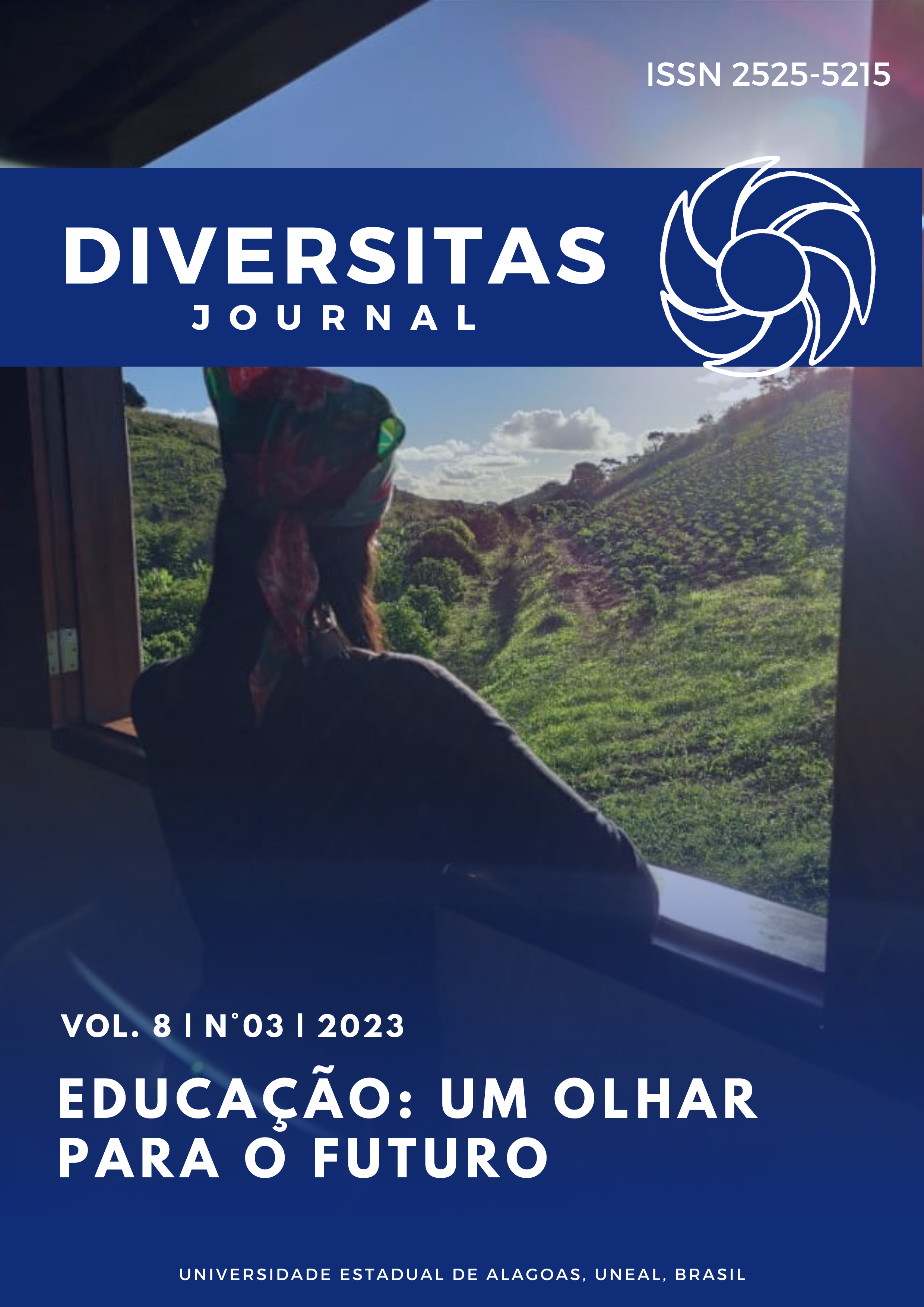Do imperialismo ao liberalismo. Reinventando o comércio, as instituições e a unidade na Europa pós-Primeira Guerra Mundial
DOI:
https://doi.org/10.48017/dj.v8i3.2667Palavras-chave:
Imperialismo, Liberalismo, Comércio, Instituições, Primeira Guerra MundialResumo
O liberalismo emergiu fortalecido teoricamente no rescaldo da Primeira Guerra Mundial. O início de uma nova ordem liberal em 1918-9 não significava que duraria para sempre ou que não teria oponentes. A autocracia imperial foi substituída pelo coletivismo: tanto da esquerda (comunismo) quanto da direita (nazismo e fascismo). O sistema mundial wilsoniano, baseado no comércio e nas instituições, foi posteriormente atacado pelo totalitarismo que enfraqueceu o liberalismo. O liberalismo como política externa e seus elementos centrais foram revigorados graças ao conflito – pelo menos na Europa Ocidental. Em primeiro lugar, o fato de que o comércio leva à paz, como explica Norman Angell. Em segundo lugar, que o institucionalismo, a democracia e a autodeterminação fortaleceram os Estados, facilitando a cooperação entre eles, conforme defendido por Woodrow Wilson. Por fim, o fato de que a unidade européia pacífica para lutar contra os adversários externos e obter a independência será beneficiado, de acordo com Richard Coubenhove-Kalergi, o povo europeu.
Métricas
Referências
Angell, Norman (2015 [1910]). The Great Illusion. A Study of the Relation of Military Powers to National Advantage. Jungle Land Publishing.
Angell, Norman (1935). “Peace and the Public Mind”. From: https://www.nobelprize.org/prizes/peace/1933/angell/lecture/, 12.06.1935.
Coudenhove-Kalergi, Richard N. (2019 [1923]). Pan-Europa. Independently published.
Wilson, Woodrow (1917). “Making the World ‘Safe for Democracy’: Woodrow Wilson Asks for War”. From: https://historymatters.gmu.edu/d/4943.
Wilson, Woodrow (1918a). “14 Points”. From: https://www.archives.gov/milestone-documents/president-woodrow-wilsons-14-points.
Wilson, Woodrow (1918b). “Address at the University of Paris, December 21st, 1918” in Link, Arthur (Ed.), The Papers of Woodrow Wilson (69 vols. 1966-1994), 53: 462.
Berghahn, Volker R. (2014). “Origins”, in Winter, Jay M. (Ed.), The Cambridge History of the First World War. Volume II: the State. Cambridge: Cambridge University Press.
Clarks, Christopher (2013). The Sleepwalkers. How Europe Went to War in 1914. London: Penguin Books.
Compagnon, Olivier; Purseigle, Pierre (2016). Geographies of mobilization and territories of belligerence during World War I. Annales (Paris): histoire, sciences sociales, Vol. 71, Num. 1, pp. 37-60, DOI: https://doi.org/10.1017/S2398568217000024.
Dornik, Wolfram (2014). “A School of Violence and Spatial Desires? Austro-Hungarian Experiences of War in Eastern Europe, 1914–1918”, in Bürgschwentner, Joachim; Egger, Matthias; Barth-Scalmani, Gunda, Other Fronts, Other Wars? First World War Studies on the Eve of the Centennial. Leiden: Brill Academic Pub.
Gerwarth, Robert (2017). “1918 and the End of Europe’s Land Empires”, in Thomas, Martin; Thompson, Andrew S. (Eds.), The Oxford Handbook of the Ends of Empire. Oxford: Oxford University Press.
Green, Daniel M.; Denemark, Robert A. (1999). “Cycles of Liberalism in the Twentieth Century”. Humboldt Journal of Social Relations, Vol. 25, Num. 1, pp. 31-64.
Hobson, John A. (1965 [1938]). Imperialism. Ann Arbor: University of Michigan Press.
Joll, James (1984). The Origins of the First World War. London: Longman.
Konrad, Helmut (2014). “Drafting the peace”, in Winter, Jay M. (Ed.), The Cambridge History of the First World War. Volume II: the State. Cambridge: Cambridge University Press.
Howard, Michael (1993). “A Thirty Years’ War? The Two World Wars in Historical Perspective”, in The Prothero Transactions of the Royal Historical Society, Vol. 3, pp. 171-184, DOI: https://doi.org/10.2307/3679140.
Manela, Erez (2007). The Wilsonian Moment: Self-Determination and the International Origins of Anticolonial Nationalism. Oxford. Oxford University Press.
Meiser, Jeffrey W. (2018). “Introducing Liberalism in International Relations Theory”. From: https://www.e-ir.info/2018/02/18/introducing-liberalism-in-international-relations-theory/, 18.02.2018.
Milevski, Lukas (2020). “Modern liberal wars, illiberal allies, and peace as the failure of policy”. Defense & Security Analysis, Vol. 36, Num. 3, pp. 300-313, DOI: https://doi.org/10.1080/14751798.2020.1790808.
Mombauer, Annika (2015). “Guilt or Responsibility? The Hundred-Year Debate on the Origins of World War I”. Central European History, Vol. 48, Num. 4, pp. 541-564, DOI: https://doi.org/10.1017/S0008938915001144.
Morrow, John H. (2014). “The Imperial Framework”, in Winter, Jay M. (Ed.), The Cambridge History of the First World War. Volume II: the State. Cambridge: Cambridge University Press.
Long, David (2006). “Liberalism, Imperialism, and Empire”. Studies in Political Economy, Vol. 78, Num. 1, pp. 201-223, DOI: https://doi.org/10.1080/19187033.2006.11675107.
Lynch, Allen (2002). “Woodrow Wilson and the Principle of ‘National Self-Determination’: A Reconsideration”. Review of International Studies, Vol. 28, Num. 2, pp. 419-436, DOI: https://doi.org/10.1017/S0260210502004199.
Ripsman, Norrin M.; Blanchard, Jean‐Marc F. (1996). “Commercial liberalism under fire: Evidence from 1914 and 1936”. Security Studies, Vol. 6, Num 2, pp. 4-50, DOI: https://doi.org/10.1080/09636419608429305.
Rowe, David M. (2005). “The Tragedy of Liberalism How Globalization Caused the First World War”. Security Studies, Vol. 14, Num. 3, pp. 407-447, DOI: https://doi.org/10.1080/09636410500323153.
Siraut, Mark (2018). “Woodrow Wilson’s 14 Points and the Liberal World Order”. From: https://www.mironline.ca/liberal-world-order-myths/, 18.01.2018.
Taylor, Samatha A. (2020). “The Ruse of the Liberal World Order”. From: https://warroom.armywarcollege.edu/articles/liberal-world-order/, 29.04.2020.
Trickey, Erick (2017). “How Woodrow Wilson’s War Speech to Congress Changed Him – and the Nation”. From: https://www.smithsonianmag.com/history/how-woodrow-wilsons-war-speech-congress-changed-him-and-nation-180962755/, 03.04.2017.
Downloads
Publicado
Como Citar
Edição
Seção
Licença
Copyright (c) 2023 Amedeo Gasparini

Este trabalho está licenciado sob uma licença Creative Commons Attribution 4.0 International License.
O periodico Diversitas Journal expressa que os artigos são de unica responsabilidade dos Autores, conhecedores da legislação Brasileira e internacional. Os artigos são revisados pelos pares e devem ter o cuidado de avisar da possível incidencia de plagiarismo. Contudo o plagio é uma ação incontestavel dos autores. A Diversitas Journal não publicará artigos com indicios de Plagiarismos. Artigos com plagios serão tratados em conformidade com os procedimentos de plagiarismo COPE.
A violação dos direitos autorais constitui crime, previsto no artigo 184, do Código Penal Brasileiro:
“Art. 184 Violar direitos de autor e os que lhe são conexos: Pena – detenção, de 3 (três) meses a 1 (um) ano, ou multa. § 1o Se a violação consistir em reprodução total ou parcial, com intuito de lucro direto ou indireto, por qualquer meio ou processo, de obra intelectual, interpretação, execução ou fonograma, sem autorização expressa do autor, do artista intérprete ou executante, do produtor, conforme o caso, ou de quem os represente: Pena – reclusão, de 2 (dois) a 4 (quatro) anos, e multa.”


















